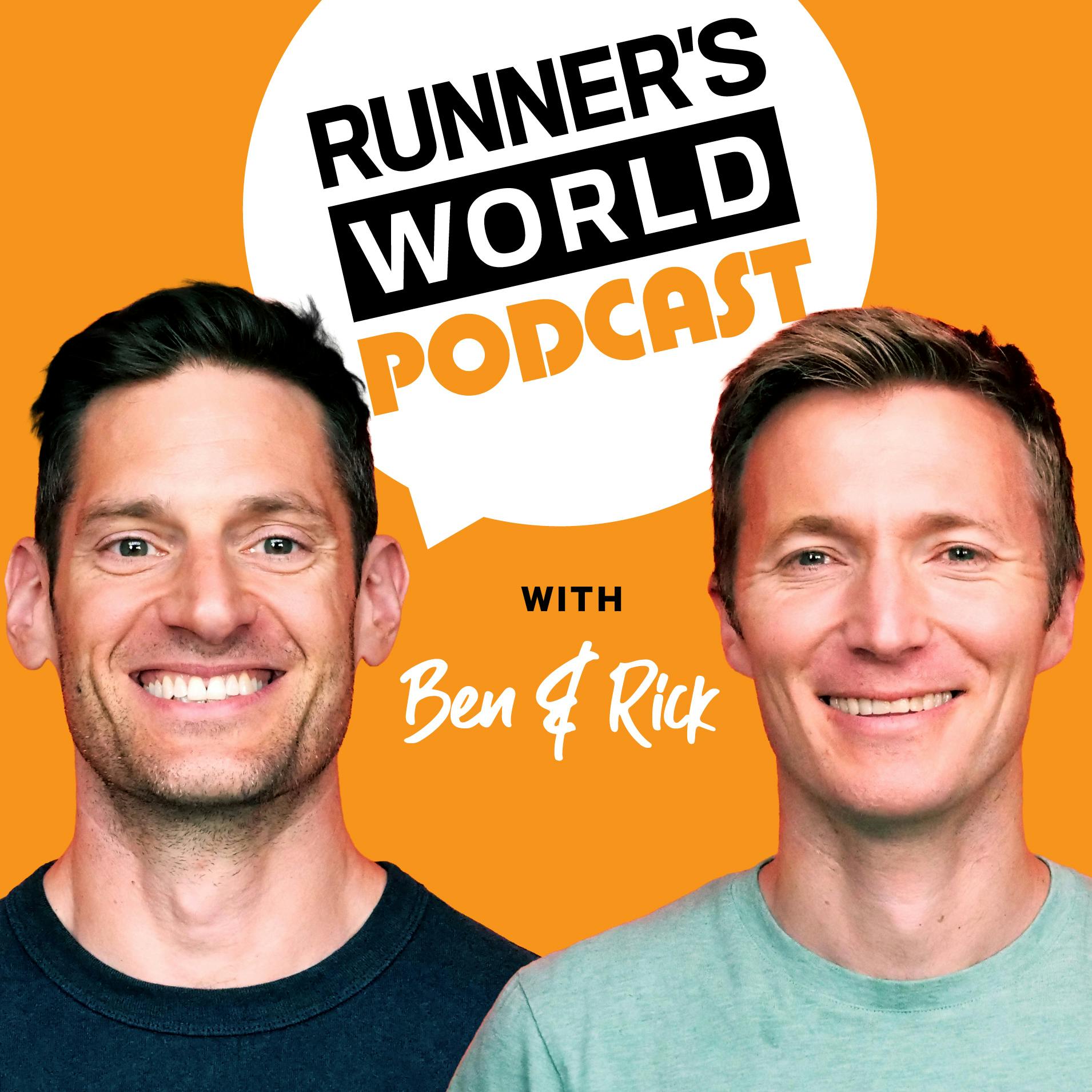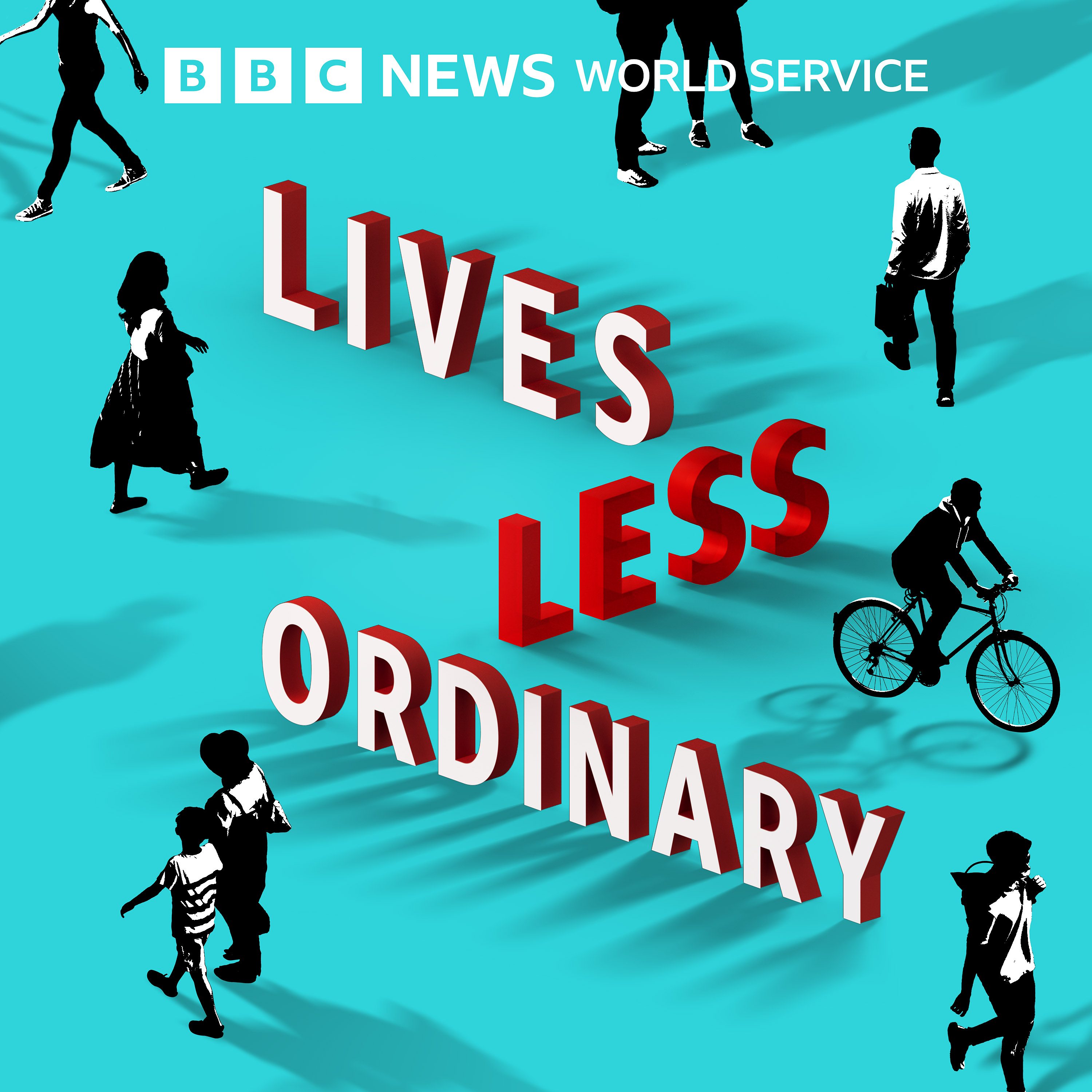
Brian's Run Pod
Welcome to Brian's Run Pod, the podcast where we lace up our running shoes and explore the exhilarating world of running. Whether you're a seasoned marathoner, a casual jogger, or just thinking about taking your first stride, this podcast is your ultimate companion on your running journey.
Join us as we dive deep into the sport of running, covering everything from training tips and race strategies to personal stories and inspiring interviews with runners from all walks of life. Whether you're looking to improve your race times, stay motivated, or simply enjoy the therapeutic rhythm of running, Brian's Run Pod has something for every runner.
Brian's Run Pod
Breaking Through the Mental Wall: Strategies for Runners
In this eye-opening discussion with certified mental performance coach Michael Huber, we explore the crucial but often overlooked mental aspects of running that can make or break your performance, enjoyment, and long-term commitment to the sport.
• Mental strategies can help runners push through self-doubt and pain during races and training
• The importance of having a mental plan before starting a run, just as you'd have a physical training plan
• How writing intentions or mantras on your hand provides visual reminders during difficult moments
• Reframing your relationship with pain—seeing it as evidence of effort rather than something negative
• Breaking larger goals into smaller segments creates clearer connections between daily actions and long-term aspirations
• Viewing injuries as opportunities to strengthen neglected areas rather than purely as setbacks
• Mental flexibility helps with both running challenges and everyday life situations
• Focusing on the process and character development rather than solely on outcome goals
• Acceptance and curiosity about discomfort can help during the return from injury
Join us next week for part two as we continue our conversation with Michael about how the mind can become an integral part of your training plan.
Brian's Run Pod has become interactive with the audience. If you look at the top of the Episode description tap on "Send us a Text Message". You can tell me what you think of the episode or alternatively what you would like covered. If your lucky I might even read them out on the podcast.
Instagram
So you're thinking about running, but not sure how to take the first step. My name is Brian Patterson and I'm here to help. Welcome to Brian's Rompod. So hey there, everyone, welcome back to brian's run pod, the show where we lace up, dive into deep all things running, and I'm your host, brian patterson. And today we've got a very special guest and I know it's something that every runner faces but doesn't always talk about and that's the mental game. So, anyway, we're joined by Michael Huber, who is a certified mental performance coach who works with athletes and across all sports and yes, that includes us runners. So what we're going to do is chat about everything from pre-race nerves to pushing through the pain curve, pain cave. So, further ado, let's introduce Michael. It's a way to have an audience for you, sir.
Speaker 2:I love it. That's so great Brian.
Speaker 1:Thanks very much and thanks for persevering through the technical issues. It was probably my end anyway, but, as I do with most of my guests, I just wanted to start with kind of like your story in terms of you know, what were you like as a sportsman growing up, during high school.
Speaker 2:Yeah, so sports were such a big part of my adolescence, growing up, from the time I was quite small until through high school here in the United States, and I played all different sorts of sports here. So I played American football, baseball and basketball, okay, and I always loved it and I did different things as well, and so that is a big part of the inspiration for doing the work that I do in sports psychology.
Speaker 1:And so that is a big part of the inspiration for doing the work that I do in sports psychology. Did you just predominantly do team sports or, you know, did you sort of venture into running or anything like that?
Speaker 2:Yeah, later in life. So when I was younger, it was exclusively team sports. I didn't do anything individually besides a little bit of wrestling for a bit, besides a little bit of wrestling for a bit.
Speaker 2:But beyond that I started doing more individual type sports, whether it was running, or at one point it was powerlifting and another point it was other stuff, different types of like endurance races, you know like sort of mixed kind of endurance races. So I've moved, or I had moved, into individual sports. As I got an older team Sports are sort of harder to do at this point in my life.
Speaker 1:Right, do you think? I don't know if you've experienced, you know how sports is kind of taught overseas? Do you think in America I kind of get the impression that it tends to have a little bit of a head start. Is that fair?
Speaker 2:I don't know if it's so much a head start. It's actually an interesting question. I think it's just more it's taken, more it's professionalized here at a younger age. I think it's become such a big industry which is kind of a big topic here in the United States in terms of the professionalization of youth sport and how it sort of becomes much more serious and involved and financially impactful at a younger age, and so I think there's more stress and more pressure on young people, which is a big part of what I do. So I think it happens sooner and that I think also leads to sort of motivational issues in a lot of ways, because there's a lot of burnout because it's too hard and too difficult, not as much fun it's, etc. Those kinds of things I of burnout because it's too hard and too difficult, not as much fun et cetera, those kinds of things.
Speaker 1:I mean it's just I'm interested in kind of the landscape. I mean we will get back to running in a minute, but I mean that kind of comparison because I know over here in the UK, although football or soccer is our national sport or whatever, but you do get the professional teams I think now only in the last maybe 30, 40 years picking up, you know youngsters, you know like the Manchester United and the Arsenals of this world sort of thing at an early age. But whether that's maybe they've taken that example from America where I know at high school they're there to show themselves or for, you know, for collegiate sports or even going on beyond that yeah, I think it's actually interesting.
Speaker 2:We'll sort of, if we take football, american soccer yeah, yeah, the example, I think we're actually starting to move toward the european model, which is getting to academies earlier and professionalizing it and having those athletes become on the track to professional early.
Speaker 2:And then the other athletes who are outside of the academy model are more, say, recreational, but they're not as high level. So I think that's starting to happen. I think the difference is everybody in America wants to be in that world and they can't be, so they create all these different organizations that try to replicate that. So everybody feels like they're part of it, but they're not, as it's not the same as an MLS team, say, a professional league here. They have their own academies now that's sort of the highest level, so to speak, in the us. And then there's all these other organizations that try to mimic that. Yeah, so people feel like they want their kids to be a part of it, and it's just such a big part of the culture here that people just get so wound up and wrapped up about it that everybody gets feels a great deal of stress, whether you're a parent or a kid yeah, yeah, I mean, and also I mean when you're a kid.
Speaker 1:There's lots of sports to be competing with, you know sort of thing. So, and I know it's something that you've no doubt have come across in you know your professional life.
Speaker 1:So comes up all the time in terms of when's the right time to move on and specialize, and that's also a big debate here in the united states yeah, right, moving on to sports psychology, which is kind of your your thing and for runners, now I know, when I was sort of doing a little bit of research about sports psychology, it's certainly become a mass, you know, it's certainly something that's become part of the professional world for quite a while.
Speaker 1:I mean, um, I mean, I was just looking up that one of the famous examples of sports psychology in terms of here in the uk was a famous sports psychologist, a guy called michael peters, who I don't know if you know, but he wrote the Paradox and it was something that he used with the 2012 British cycling team and they had an amazing success and I think from there it's kind of thinking that maybe it's caught the public's kind of imagination. I wondered do you think people are coming to you? They're saying well, I'm a runner, I'm a casual runner. Can I use this as part of my training? What, what, what do you advise?
Speaker 2:I would. I as somebody who has I've completed one marathon.
Speaker 1:Okay.
Speaker 2:As somebody who went through that training, I would absolutely advocate for people to at least learn about it right, because, as a runner and you're a runner more so than I am at this point in my life like you spend all that time in your own head running, right, if you're running long distances, it could be hours, right, you know.
Speaker 2:And so there's all this time to be thinking, which you know the chin paradox, you know, and I use some of that material in the work that I do.
Speaker 2:Like that's the way your brain works, right.
Speaker 2:As soon as you experience pain or you experience doubt or you experience wrong with me, you fixate on I want to quit, and that's the thing that a lot of times holds runners back is like this hurts too much and we could talk more about this. But, like that idea of emptying the tank, your body can endure a lot more than your brain is going to let you bleed, right. So the ability to train that and even have some basic strategies to get yourself through a training run or get yourself through a race, where you can endure that because you have a bit of perspective and you have those tools, can be really valuable, because if you love to run right. You don't want it to become miserable or you don't want to come home from a run and feel like you let yourself down right, you want to be able to enjoy it in the best way possible, and a lot of it has to do with managing the, the anxiety and the stress that that comes with it, the discomfort I mean you've just sort of kind of touched on.
Speaker 1:My next question is basically what sort of generic strategies can someone use when they're coming to those kind of, when they're coming to those kind of self-doubt moments, be it within a race or even within doing that?
Speaker 2:doing the, their training? Yeah, so that's a good word, generic right, because everybody's going to be different and that some things resonate with different people, and so in my work it's it's tried to be tailored to find the things that have the most meaning and the most application to the people I'm working with. So it's not going to be for everybody, but, like I think, number one, the biggest thing is having a plan right, just like you have a race plan, right, having a plan to deal with the mental adversity that's going to come up in a race right, like invariably, you're going to start to get negative and focus on something, right, what am I going to do when I go to that place? What's my plan? Whether it's some sort of mantra or self-talk that's going to bring me back to what I want to focus on. Why am I doing this? Yeah, or, you know, you know, having that affirmation like you are capable, you've trained for this, right? Or for some, some runners, it might be a distraction. Let me think about anything other than running in this moment to get me through. Yeah, right, but having that plan also really does mitigate some of that. Again, I'll go back to the chimp paradox, that chimp brain stuff which is I know how I'm going to handle it when it comes up, rather than sort of ignoring it and saying it's not going to come up because it is right. So it's like I know exactly what I'm going to do. So, when it happens, I have a strategy to deal with it.
Speaker 2:You know, for some runners or this is another thing to think about as a concept and I'm big on this with runners is your relationship to pain. What does it mean, right? Typically, pain means something's wrong, when in essence essence, it doesn't necessarily mean something's wrong, right, and so if you interpret it as being a negative, it's going to keep getting negative versus hey, the pain means that I'm pushing myself, the pain means that I've made this investment in being here and I have the gratitude to say that my body's allowing me to feel this pain. Right, that's a more extreme example, but just the perception of the pain is is actually a really good thing, and those are things you can practice and train in between races, which would make it even more effective than if you just had that strategy for, you know, a race day, so to speak.
Speaker 1:Because I know it's brilliant advice, because I know it's something like. Sometimes people find that they go out for a training run and sometimes the first 10 to 15 minutes of you doing the training run is really hard. It feels like you're running through cement or your breathing isn't right. But then by the time you've finished your run, you feel like you've accomplished something. You get that endorphin rush. You you feel like, oh, maybe I could do another three or four miles or and it's. You get that enjoyment from whatever activity that you've you've done. And and do you think that it's basically coming up with strategies to actually think, well, the first 10 minutes of the run is basically it's not going to be great, but once I get through that, then I'm going to start enjoying it or going through the intervals or doing a tempo run or something like that.
Speaker 2:Yeah, yeah, I think having that strategy and understanding the way the run is going to break down just eliminates some of the uncertainty. Right, there's a bit of what I would call acceptance in there. Right, I'm accepting that the first 10 or 15 minutes of this run is going to be a little bit rough. Yeah, I know, I need to get through that. Why am I doing it? I'm doing it because I want to get that feeling at the end of the run right, the endorphin rush at the end of the run. Right, the endorphin rush at the end of the run. But I want to get that reward.
Speaker 2:So it's worth it to endure that hard part, or another way to look at it. You know, kind of to go back to my earlier answer is like looking at that first 10 to 15 minutes with curiosity, when I'm what I mean by that is is like kind of almost as if you're assessing, not in a negative way, but just sort of evaluating as an observer like, hey, what's going on? I feel this way my breathing is off. Hey, how do I regulate my breathing so I can get into a rhythm? Or my stride doesn't feel right. So I'm looking at it as sort of the means to sort of figure out how I want the rest of the run to go, versus like, oh, this feels terrible, I just want to stop now.
Speaker 2:Again, I think that's normally where most of us go, because it's not enjoyable. So we can kind of have a plan. It doesn't always have to be roses right, it doesn't always have to be perfect or feel good, but we can have a much more objective approach. And you know well I'll stop there and I'll let you sort of proceed, but I'm sure it'll come up in a bit. I don't want to jump too far ahead.
Speaker 1:I mean no, no, no, no, fine, carry on. I mean I was just thinking at the top of my head. I was thinking that is this something that one would write down. So let's say, maybe as part of your training plan, you can say you can write a note, a side note, as it were, as to what you're actually thinking. So in, in other words, you've got one column for the right, I'm going to do five-minute warm-up, 10 times 400 at so-and-so pace, and then, on the right-hand side, I'm actually thinking about. You know what am I thinking? You know what are the strategies.
Speaker 2:Right, well, that's actually a really great idea, right, like you can set the intention for those segments. Yeah, what's my intent in that segment? Right, I could talk about my response. You might use a, a run log. Right where you're after the runs over, you're logging sort of what's my reflection. That's a big tool that I love to use with athletes right, reflecting right, especially after a performance or training segment where you're like, hey, what really happened? Right, so the memory's fresh in our mind, the thoughts are fresh in our mind, and we can sort of log it and we start to build this sort of database. This was my intent going in. Was I able to execute on my intent and what did I learn from the run? And so next time I go, I can modify my plan or I can go. That went really really well. I'm gonna stick with this approach, right, so intention is really good.
Speaker 2:In terms of writing things down, you can also. You can also write things down on your hand, your hand or somewhere on you as a reminder. Yes, that's a good idea. Yeah, yeah, you know, for a lot of athletes. Yes, that's a good idea. Yeah, yeah, you know, for a lot of athletes, regardless of sport.
Speaker 2:That's a suggestion I make where you have this sort of like one word or like small phrase that you put on a hand or something or on your wrist or your forearm, where it reminds you of, like, why I'm doing this, how do I want to return to the present moment? Right, want to return to the present moment? Right, I start to get distracted because this really hurts or I don't want to do this. Well, you know, now you have that sort of intentional reminder of no, keep going, right, and here's why we're going to keep going, and so it's like.
Speaker 2:It's like. You know, the metaphor I use is if I go to the grocery store, right, I'm going to buy food and I don't bring a list to remind me of what I need, I'm going to forget it. If I want to show up to this run, in a certain way I might give myself a visual reminder that allows me to sort of bring myself back to where I want, to, the intent that I want to bring to this run, just by giving myself a visual reminder. Versus, I forget what I want to do, I forget my intention, everything goes away because I'm so caught up in the pain, the discomfort, the anxiety, the self-flagellation because things aren't going the way that I want them to go.
Speaker 1:Yeah, and also it's kind of because it's well, it's a visual imprint, but you're making a commitment, is that right?
Speaker 2:Yeah, that's a great way to put it right. You're committing to what you want to do, right? And I think you know any athletic performer, whether you are a runner, recreationally, say, or you're like an elite sport athlete, right, we all judge ourselves based on the performance, the outcome, right, did this was the time what I wanted it to be? Did I feel the way I wanted it to be? No-transcript, what have you? And do I appreciate that? You know, do I, do I appreciate the character building that comes with being a runner? Do I, am I grateful for that, even when I'm doing it? Or am I, you know? Do I, do I appreciate the character building that comes with being a runner? Do I, am I grateful for that, even when I'm doing it? Or am I, you know? Am I cursing it as I'm running and I'm not enjoying it at all, but then when it's over, I feel good, like, oh, I did it right. Can we really enjoy the moments you know of that process, because that's part of it, and do you think?
Speaker 1:having this approach of this mental approach, helps with sustainability, because a lot of people will maybe do. It's not part of their life, it's something that maybe they've just taken up, and then suddenly, six weeks later, they're back on the couch watching a soap opera, you know, eating chips, sort of thing, and they feel they've given up because it's it's. It's hard work.
Speaker 2:Yeah, I think that kind of comes back to the why am I doing it? Right, Like if I don't love to run. Forcing myself to run is probably not going to be sustainable unless.
Speaker 2:I figure out the reason why I'm doing it Right. So I'll just sort of use my own personal experience. The one marathon that I ran, I was never somebody who loves running. I got into running for a bit and then I had, you know, and I was running like short distances, you know, up to maybe five miles, right, like that was sort of my thing. And then I had a friend was like, let's run a marathon together. So I had this sort of accountability.
Speaker 2:I signed up for the marathon, I was running it with my friends and I was like, well, now I need to do it Right. So, like does the accountability element is important, right, whether it's to somebody else or to yourself. Right, like, why, right, I don't like running, but I'm running because I want to be healthy for my family, I want to live longer. That's going to be more sustainable than I'm just running. To say that I ran and I'm running to even to lose weight, right, like that might not be enough to keep someone going, cause there's other ways to lose weight and running isn't particularly enjoyable for a lot of people.
Speaker 2:So it's like well, I'm not going to do it, right, yeah, and I think that's true. I don't think it's necessarily has to be for everybody, but if you're going to do it, find the reasons why you enjoy it. Find the reasons why you're doing it, versus just forcing yourself to do it, because we could apply that to any activity.
Speaker 1:If you force yourself to do something, it's really not going to be sustainable yeah, I've written on the outline that basically about goal setting, because it's something that you hear a lot about and people would say, okay, I am, I'm doing this because I'm accomplishing my goals. But let's go sort of go back to basics why is it important? And then we can sort of expand on that as to how can we go about setting good, good goals for ourselves.
Speaker 2:Yeah, I mean, setting goals has a lot of purpose, right, in the sense that it helps with motivation. Right, we're aspiring to something in the future. It helps our focus in terms of our daily actions. I would talk about structuring goals and I'm sure we'll talk about that. So, like, goals are good because if we want to accomplish something right and we don't hold ourselves to account which a lot of times we do that through a written goal setting exercise. You know, if we don't hold ourselves to account, it's easy to drop off right and then for a more you know, experienced or more accomplished runner it may be.
Speaker 2:I need to aspire to decrease my times because that keeps me going right, but I think setting the goals up, the structuring the goals in the proper way, whatever that framework is, is really important, because I think sometimes with goal setting just generally, we put so much focus on the outcome and we don't put as much focus on the process. We just want to achieve a goal but we don't actually have a plan that's properly structured and realistic to be like okay, this is what my goals I'm trying to get here, but I'm giving myself enough time and I'm laying out each of the bricks in the goal setting plan. So I feel like, okay, it's achievable today Something I'm doing. Tomorrow might be a little bit harder, but it's achievable, versus going from nothing to the end goal, really, really know quickly, and now that's going to lead to I can't do this, I'm gonna, I'm gonna quit what I'm doing?
Speaker 1:yeah, is it because that some people sort of get you know they, they set the goal six months time, I'm gonna so, so, so time, or I'm gonna lose so so weight or that kind of thing, and then it kind of becomes a little bit fuzzy. But basically what they should be thinking about is what they should be to achieve. That it's about the here and now and what they're going to be doing yeah, yeah, great.
Speaker 2:Aligning your daily actions to the long-term goal is something I'm always talking about with athletes, right, like what you're doing today, while maybe it doesn't seem like it should be aligned with this, like, is this thing that I'm doing going to help me reach that goal? And if the answer is no, then maybe you want to reevaluate. I think the other thing is breaking them up into like timeframes, right? So if we're looking out six months to achieve, you know, a goal in a race in six months, maybe breaking it up into segments, right, month by month, we're going to have a goal setting plan for this month versus the next, versus the next, or every two or three months or whatever, right? Because that connection between today and six months could be really hard to maintain. It might get fuzzy. Right Versus like oh, today's goal connects to one month out, and one month out connects to two months out and then six months right
Speaker 2:so, again, there's a lot of different ways to sort of conceptualize it. You know, visually, like you know there's different, like I like to use a pyramid. A ladder is a good way to conceive of it, but, like, like you know what that looks like. If the top of the ladder looks like this, what are all the steps up the ladder, what are the pyramids Like? What am I doing at the base that's going to allow me to get to the top of the pyramid? Right, so like, and there's other ways to do it. Everybody's different, right, and again, I'm not like precious about how you do it.
Speaker 2:I think it's really more about why do I want this goal and this goal and are my actions aligning to that goal? And are we making it manageable to stay with that plan over time? And we can we adjust on the fly? And I think people, a lot of people, are all or nothing. That's where goal setting right, right, yeah, right, even if, even if I don't hit my my outcome goal, I want to, you know, break four hours in in a marathon. Yeah, I run 410, like that's just arbitrary. I still ran the marathon in roughly four hours and I did everything I wanted leading up to it. It all is not lost. It wasn't a disaster. Yeah, really, really productive, and it was a great accomplishment. Yeah, maybe I didn't get the time that I want. That's not the thing that should ultimately determine success, at least on its own.
Speaker 1:In fact, you just reminded me of someone, a guest, and she'd come over to. She's an American and she's coming over. I think I remember her saying when she came on the podcast that she wanted to do three and a half for the marathon over here in London and unfortunately she got ill the week before and it was kind of touch and go as to whether she'd you know she was doing it with her husband and whether she'd be able to do it. But at the end of the day she did actually accomplish doing the marathon here in London. Now I was just thinking.
Speaker 1:Just thinking about what you were just saying is that although she didn't accomplish her end goal at the time, it was obviously it was a massive experience for her. You know to be doing any marathon in any one of the major cities, or you know the top six, be it New York or whatever. There are so many positives there in terms of you know what you can draw on, and I mean it's not just about the time, yeah, and in that example, right, there's only so much you can you control, right.
Speaker 2:You don't control necessarily your body's, you know, decision to fall ill right, yeah, exactly so right that that that there a obviously a big part of that is acceptance. Like this happened, I couldn't do anything about it, I have to live with it. But the character element of it, the identity element not just hey, I'm a fast runner, it's like, hey, I'm a really strong, resilient person, because I overcame the illness, I still was able to move forward, complete the marathon. You know, maybe not the way I envisioned it at the start, but something happened I couldn't do anything about and I kept moving forward. And I can take a lot of really positive things about that.
Speaker 2:And I think that that is something a lot of athletes struggle with. They have a hard time looking at it as character building exercise. They're only looking at the outcome as the determinant of success, whether they feel good about themselves or not, and that's that's also something that's going to lead to burnout over time, maybe not in the short run, but certainly in the long run, like if you don't, if you make it all about the outcomes, it's going to be really hard to sort of stick with it, because if you don't get the outcomes and it's like well, the only reason I'm doing this is to feel good and get external validation and I'm not getting it.
Speaker 1:So yeah, I'm just going to quit. And sometimes you hear that even when you achieve the outcomes, you hear from even professional athletes. It's like well, what next? You know you know exactly it's like what, what next?
Speaker 1:you know, you know exactly, I mean basically. I mean I mean we've kind of stumbled our way onto the next bit, basically, is in in how, I mean in your experience, what's the? You know? Can it be any sort of psychological strategies can people employ when they're injured or they're not being able to train, you know, like they should be doing? Is there something that they can employ to help them get through that phase? Because I know sometimes I mean I, when I was overcoming an injury, thankfully, you know, with physio it it's helped a lot, but it's been a very gradual process and now I'm just getting back to us, or running, as I was maybe at the beginning of the year, but what? What could we do from a mental perspective?
Speaker 2:yeah. So I would say, generally, one of the things that I'm big on about injuries is is is, you know, working on the things that you wouldn't normally spend time on when you're healthy? Right, and listen. A lot of times the injuries happen because we neglect certain elements of our training, right, whether it's strength training, or it's mobility, or it's nutrition or whatever those things that impact our health. We're neglecting them in service of. I'm going to just train, train, train, train, train, and I'm not doing the little things to keep me healthy.
Speaker 2:Now my body says, hey, you've been doing this too long and you're, you know, you're breaking down. Now can I use that injury as an opportunity to rebuild and strengthen some of the things that? Or work on some of the things I wouldn't normally work on so I could come back stronger? Right, I can, and you know, come back on the other side of it and be more stable and more stronger and all those things, right. So looking at the injury as an opportunity, right? The other thing is is is this character building? Again, let's talk about training, right, go through training and we only focus on the, the result, the time we're not really giving ourselves credit for all the work that we've done well. Injury is a tests a lot of people's metal. You know their identity, especially if you're an avid runner or your competitive runner. It takes your identity away like well, if I'm, if I'm not running, you know who am I.
Speaker 1:Am I giving?
Speaker 2:you an opportunity to explore that or give you an opportunity to do some other things that you wouldn't normally do outside of running. Right, you could be like, hey, I'm going to take up a hobby or whatever. Whatever it is Right. I think it's it's dependent on everybody's individual situation, but it's perspective right. Looking at the injury as an opportunity to do something else or to work on something else that I wouldn't normally work on, it's going to make me better in the long run, even though right now it's hard to accept and it's hard to deal with.
Speaker 2:And there's listen, there's a whole process depending you know again who you are and what you're going through of coping right. Like it's not going to be easy, it's going to be uncomfortable, I had a surgery or I can't do anything, I'm in a booth, I'm on crutches, like that's just. You know, those are things that we have to learn how to deal with and regulate our emotions right. That might be a time where you start to take up something like meditation, where you're just learning to get live in acceptance of. These are things that happen and I don't like it and it's okay not to like it and it makes me emotional, but rather than trying to resist it, or maybe I try to self-medicate right like I'm not running anymore, so I have no reason to get up in the morning.
Speaker 2:I'm gonna, I'm gonna have, I'm gonna drink more, I'm gonna eat right, yeah yeah, right, and and being able to look at that and go, okay, you know what, I can accept this and I'm going to really explore my feelings, even though they're uncomfortable. So there's a lot of different ways to do it, but I think, ultimately, the big picture for me is, when you get injured, it's an opportunity to grow.
Speaker 1:If you decide to look at it that way versus looking at it as, yeah, you know why me? Yeah, because I, because I can understand that someone who would be regular three, four times a week down the gym, or even doing four times a you know, running that kind of thing and from a mental, you know, from a mental health point of view it it can really affect them. Obviously. But, like you're saying it, it may be an opportunity for you to focus on other areas and to, you know, to, to use that sort of that, the mental focus that you had with, you know, for training, to doing something completely different yeah, yeah, I think here's, you know.
Speaker 2:the other thing too is like, obviously there's the return from injury, right, and sometimes it affects our confidence, right, like my. My doctor says that I'm fully and this app actually comes up quite a bit in my work. Okay, doctor says I'm cleared to run, I'm fully healed, but I still feel a little bit of pain. I still feel uncomfortable. So that pain, pain. I still feel uncomfortable, so that pain. I'll go back to the chin paradox.
Speaker 2:That pain is a signal from our brain that something's wrong, and so we latch onto it and go oh, I'm not healthy yet, even though my doctor did a scan, they did an x-ray. Maybe it's just a little bit of excess discomfort, maybe it's a little bit of scar tissue working itself out, maybe there's a little bit of tightness because I haven't done anything, but it doesn't mean that I'm going to get re-injured, right. And so that acceptance and looking at it again is an opportunity. What can I learn from it? Hey, I'm coming back from injury. What am I learning about my body? What can I push myself through? When do I back off?
Speaker 2:Right, getting curious about that versus like looking at it and go, I shouldn't feel any pain, I should feel great, I should feel perfect. That's not realistic, right? So, being another way to say it, brian is learning how to be more flexible mentally, right. I can adjust and adapt to the things that are going on. I can look at them objectively and I can learn from them and be curious about them and make changes and accept them, rather than like resisting them or being like this is bad, I don't want it. Why is this happening, going to the negative? We can train our mind to be more flexible and that gives us a lot of. There's a lot of application outside of running. It's all areas of our life.
Speaker 1:I'm sure you'll agree with me that Michael has been a wealth of information, from having a mental plan before starting a run or race to breaking larger goals into smaller segments. Also, how he viewed injury as a time of self-reflection and as an opportunity to focus on other areas in your life. There is something for everyone in this podcast, and it doesn't stop there as we chat more to Michael about how the mind can be an integral muscle into your training plan, so don't forget to tune in to part two. So till next week. Goodbye for now.
Podcasts we love
Check out these other fine podcasts recommended by us, not an algorithm.

Life Changing
BBC Radio 4
Tech Life
BBC World Service
Runner's World Podcast
Runner's World UK
Buzzcast
Buzzsprout
Newscast
BBC News
Understand
BBC Radio 4
Cyber Hack
BBC World Service
Ghost Story
Audible| Pineapple Street StudiosDiz Runs Radio: Running, Life, & Everything In Between
Join Denny Krahe, AKA Diz, as he talks with a variety of runners about running, life, and everything in between.
Uncharted with Hannah Fry
BBC Radio 4
The Global Story
BBC World Service
The Coming Storm
BBC Radio 4
Lives Less Ordinary
BBC World Service
Do Epic Shit Today Podcast
Hannah Mulhern
The Rest Is History
Goalhanger
